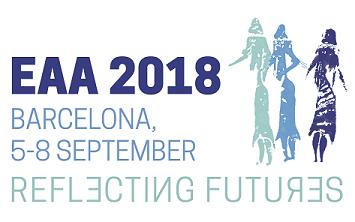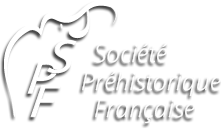 A noter / Autour de la Préhistoire
A noter / Autour de la Préhistoire 
Congrès, colloques, réunions
5-8 septembre 2018
Barcelone

24th Annual Meeting of the European Association of Archaeologists "Reflecting futures" - Session #652 - Theme: The archaeology of material culture, bodies and landscapes
Session organisers:
Dr Sonja Grimm (SFB 1266 "Scales of Transformation", Centre for Baltic and Scandinavian Archaeology (ZBSA), Germany; sonja.grimm@schloss-gottorf.de) and Dr Natasha Reynolds (UMR 5199 PACEA, University of Bordeaux, France; natasha.reynolds@u-bordeaux.fr)
The Middle/Upper Palaeolithic and Mesolithic/Neolithic transitions in Europe have long been major foci of research attention. But what about the changes that occurred between these two important transformations? In the Upper Palaeolithic and Mesolithic record, we see clear evidence for changes through time in social organisation, technologies, hunting strategies, mobility, and cultural practices.
Describing and interpreting these changes is of major interest, despite the challenges. More precise and robust chronologies and the ever-increasing volume of archaeological data have strengthened our understanding of the modern human hunter-gatherer past. Environmental and climatic changes as well as the appearance and spread of new technologies are often seen as key to understanding cultural change. Beyond this, our discussions of mechanisms and meaning behind changes seen in the archaeological record seem quite limited, and there is scope for improving our interpretations and theoretical frameworks.
Questions we wish to address are:
- What kind of methodological and theoretical problems do we face when trying to compare periods and how do we overcome them?
- How do we conceptualise units of comparison (periods, cultures) and to what degree do these heuristics determine our research outcomes?
- What lessons does current research teach us about our understanding of change in the hunter-gatherer past?
In this session, we seek to provoke an epistemological debate using Upper Palaeolithic and Mesolithic case studies. Therefore, papers that address methodological and theoretical issues are particularly welcome. Through this session, we hope to improve our understanding of a principal concept used in archaeology: change.
Proposals for oral presentations (15 mins) and posters welcome; please get in touch if you have any questions.
Abstracts can be submitted at www.e-a-a.org/EAA2018 until 15 February 2018.


